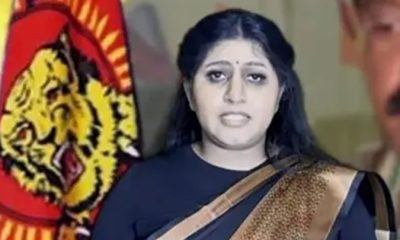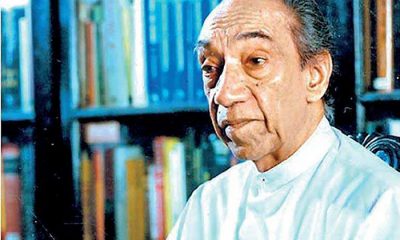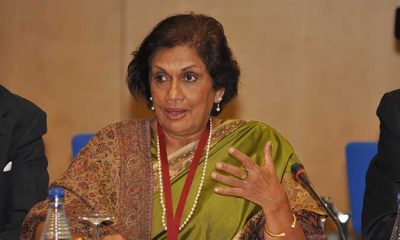News
Implementation of Yahapalana strategy President’s real intention – Manohara

Lt. Gen. Dias warns of Eelam through constitutional means
By Shamindra Ferdinando
Former Army Chief of Staff Lt. Gen. Jagath Dias asks whether a plan is underway to help establish Eelam by constitutional means.The Gajaba Regiment veteran asked a gathering at Sri Sambuddhathva Jayanthi Mandiraya whether they realised that the full implementation of the 13th Amendment to the Constitution would pave the way for a separate state in the Northern and Eastern province for all practical purposes.
The former frontline combat veteran said so, addressing a recent meeting to educate the people on the danger of the full implementation of the 13th Amendment to the Constitution, enacted in the late 1988 in terms of the Indo-Lanka Accord signed in the previous year virtually at the point of a gun held by New Delhi.
Having served the Army for over 35 years, Jagath Dias retired in Dec. 2015. At the time of his retirement, he held the rank of Major General. The ex-soldier said that he felt the urgent need to oppose the Wickremesinghe-Rajapaksa government move as it would lead to the disintegration of the country.
Those who had fought the LTTE, at the risk of their lives to bring the war to a successful conclusion in May 2009, were aghast at the current moves to facilitate the separatist agenda, the wartime General Officer Commanding (GoC) of the 57 Division said. The first Division, deployed on the Vanni front in March 2007, as the LTTE abandoned its bases in the East, the formation was tasked with regaining Kilinochchi.
The former GoC queried whether withdrawal of some military bases, at the expense of national security, giving up control of archeological sites, privatization of public assets and weakening of the military, were meant to create an environment, conducive for the breaking up of the country.
Lt. Gen. Dias who had never addressed such a public gathering before said that the implementation of the 13th Amendment couldn’t be justified, under any circumstances, as India failed to execute her side of the Accord that was forced on Sri Lanka.
Recalling the direct Indian military intervention, in 1987, as troops engaged in first brigade-level offensive in the Vadamaratchchi region of the Jaffna peninsula were on the verge of capturing Vellupillai Prabhakaran, the retired officer recalled stressing that the LTTE couldn’t be disarmed in terms of the Agreement. Therefore, Sri Lanka was not obliged to honour the accord, the Gajaba veteran said, urging fresh appraisal of the country’s response to the emerging threat.
India completed the withdrawal of its troops in March 1990. Referring to the May 1991 assassination of Congress I prime ministerial candidate Rajiv Gandhi contesting the general election, Lt. Gen. Dias explained how in the absence of proper defence and foreign policies, the LTTE gradually developed into a formidable conventional fighting force, inclusive of a deadly suicide wing that claimed the lives of so many innocents. The ex-combat officer compared the growth of the LTTE with the corresponding failure on the part of successive governments to realize the impending danger and counter the threat.
Sri Lanka should keep in mind that India forced the controversial constitutional amendment after having threatened the then executive, Lt. Gen. Dias said.At the onset of his speech, the ex-solder emphasized that he didn’t represent any political party or particular ideology. “I was influenced by the unexpected political changes last year and subsequent developments,” Lt. Gen. Dias said, declaring that the division of the country wouldn’t be allowed.
President’s Counsel Manohora de Silva, who had been always at the forefront of campaigns against separatist agenda, warned that President Ranil Wickremesinghe’s real intention was to implement constitutional proposals that were submitted by a parliamentary committee during the Yahapalana administration during which he served as the Prime Minister.
The constitutional expert said that President Wickremesinghe had been quite clear about his intention when he addressed the Parliament on 09 Aug., regarding the course of action he intended to take with regard to the issue at hand.
Referring to the constitutional proposals formulated by a parliamentary committee that included Presidents Counsel M.A. Sumanthiran (TNA) and Jayampathy Wickremaratne (UNP National List), Manohara de Silva PC said that the overall project was meant to strip Sri Lanka of its unitary status.
Pointing out that the Chief Government Whip Prasanna Ranatunga declared their support for 13A plus, immediately after President Wickremesinghe’s 09 Aug. speech, Manohara de Silva said that the UNP leader and the SLPP leader Mahinda Rajapaksa seemed to be on the same page.
Recently, rebel SLPP MP Prof. Channa Jayasumana asked former President Gotabaya Rajapaksa to state his position on President Wickremesinghe’s plan as the latter was elected in July last year to complete the five-year term won overwhelmingly by the former President at the Nov. 2019 presidential election. Prof. Jayasumana said that the former President could not keep quiet when his mandate was used contrary to the wishes of the electorate that elected him.
The President’s Counsel said that all previous presidents, including Chandrika Bandaranaike Kumaratunga, who believed in devolution, refrained from implementing certain provisions in the 13th Amendment as they realized the danger.
Referring to the relevant sections in the 13th Amendment, Manohara de Silva explained how the full implementation could quickly lead to chaos. The lawyer discussed the circumstances under which the Northern and Eastern provinces could amalgamate again to consolidate the Tamil homeland theory.
Reminding how Dinesh Gunawardena voted against the 13th Amendment in 1988 when it was presented at the behest of India, Manohara said he was utterly disappointed at the way the MEP leader remained silent when President Wickremesinghe advanced his political agenda. The lawyer stressed the responsibility on the part of Cabinet ministers to state their position on the 13th Amendment or be prepared to face the consequences.
The President’s Counsel explained how the full implementation of the 13th Amendment could reduce the national police to the task of providing protection to ‘VIPs’ whereas provincial police, under the Chief Ministers, take charge of law and order.
The outspoken lawyer urged the PM and other parliamentarians to ascertain the rapid developments taking place and take decisions with national interest in their hearts.
News
Renewed Lanka’s Easter Bombing probe puts NTJ’s South India radicalisation network back under lens
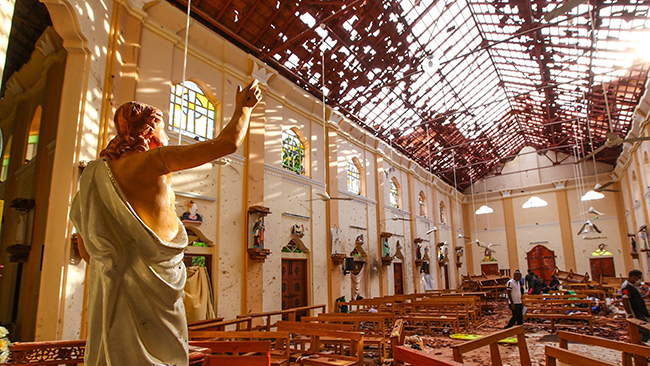
New Delhi (IANS):The arrest of Sri Lanka’s former Intelligence chief, Retired Major-General Suresh Sallay is a turning point in the investigations into the 2019 Easter Sunday bombings that killed 279 people.
The move was a bold one taken by President Anura Kumara Dissanayake who won the presidency in 2024.
He had promised that all persons involved in the attack would be brought to justice.
Sallay was made State Intelligence Service (SIS) chief in 2019 after Gotabaya Rajapaksa became President.
The allegation against Sallay was that he had permitted the attack to take place with the intention of influencing that year’s presidential election, which was eventually won by Rajapaksa.
Sallay had become a prominent figure in Sri Lanka and was widely credited with dismantling the LTTE. His arrest has led to a political storm and many state that it could revive tensions relating to the LTTE.
Ali Sabry, former Sri Lankan Minister for Foreign Affairs said that the developments are deeply troubling.
An Indian official said that the developments in Sri Lanka are being monitored closely.
On the question whether the LTTE issue would come back into the picture following the arrest of Sallay, the officer said that attempts are being made, but it would be very tough.
There have been several cases that the National Investigation Agency (NIA) has been probing concerning the revival of the LTTE.
The ISI, too, has tried its hand in ensuring the revival of the LTTE, but has not been successful so far.
To prevent the revival of the LTTE, both India and Sri Lanka have been working very closely.
Another official explained that the current ties with Sri Lanka have gone from ideological to an investment-led partnership.
Prime Minister Narendra Modi and President Dissanayake share a pragmatic relationship and this has gone a long way in ensuring cooperation on all fields including security, the official explained.
While some in Sri Lanka do not subscribe to Dissanayake’s decision on Sallay, the fact is that the Easter Bombing case has to be probed from every possible angle.
An Intelligence Bureau official says that a major concern today are the activities of the National Thowheeth Jama’ath (NTJ) and Jamathei Millathu Ibrahim (JMI), the two outfits responsible for this attack.
The NTJ in particular has a vast presence in South India and has managed to radicalise a large number of youth in Tamil Nadu and Kerala.
The mastermind of the attack, Mohammad Zahran Hashim was a frequent visitor to Tamil Nadu. He was also responsible for the radicalisation of Jamesha Mubeen who carried out an unsuccessful attempt to bomb a temple in Coimbatore in 2022.
The Indian agencies have been actively pursuing the role played by Hashim. A probe by the NIA in the South India radicalisation case revealed that the entire plot was being run by Hashim from Sri Lanka.
At least 50 of the 100 radicalisation videos seized by the agency were discourses by Hashim, who had close links with the Islamic State.
Officials say that Sallay could provide details to investigators about the module that Hashim ran.
This would come in handy for the Indian agencies who are probing cases directly linked to the NTJ in South India.
Hashim, who was the ring leader for the suicide bombers during the Easter Bombing had spent a considerable amount of time in India.
The Indian agencies would want to learn if any of the locals that Hashim interacted with had any idea about the Easter Bombings.
While in India, Hashim had focussed his radicalisation programmes mainly at Mallapuram, Coimbatore, Nagapattinam, Kanyakumari, Ramnathpuram, Vellore, Trichy and Thirunelveli, the NIA probe found.
Pallay has for now denied any links to the Easter Bombings.
Indian officials say that they do not want to comment on Pallay and his alleged links.However, it is important that the bombings are probed thoroughly since the activities of the NTJ have a direct bearing on India, particularly the southern states, the official also added.
News
Sajith warns: Don’t let trade union action stall cyclone relief
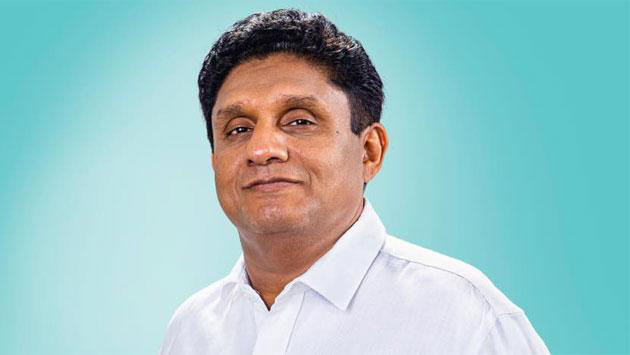
Opposition and SJB Leader Sajith Premadasa on Friday stressed that relief efforts for communities affected by Cyclone Ditwah must not be derailed by internal disputes, as several trade unions announced plans to withdraw from disaster relief duties.
Taking to ‘X’, Premadasa called on the Government to prioritise coordination and ensure uninterrupted assistance to families still awaiting aid.
“The Government must work closely with officers on the ground to ensure coordination and uninterrupted support. When families are still waiting, how can we allow for this confusion?” he questioned, emphasising that relief measures should not be delayed under any circumstances.
His remarks follow the decision by several trade unions representing Government officers engaged in disaster relief operations to launch trade union action beginning from Friday (27 February).
The unions announced their withdrawal from relief-related duties, citing unresolved issues affecting officers involved in post-disaster operations.
According to the unions, more than 93 days have elapsed since the widespread destruction caused by Cyclone Ditwah. During this period, disaster relief officers and Grama Niladharis have worked continuously, day and night, acting as key coordinators between the Government and affected communities. However, they claim that authorities have failed to adequately address longstanding concerns relating to officers engaged in relief work.
Meanwhile, Secretary to the President Nandika Sanath Kumanayake yesterday underscored the need to expedite relief and recovery initiatives.
Chairing a progress review meeting of the National Council for Disaster Management, he called for strengthened coordination among State institutions responsible for disaster response, noting that effective inter-agency collaboration is critical to delivering timely assistance to affected communities.
Efforts to accelerate recovery and maintain continuity in relief operations are ongoing.
News
Complaints filed with CID, Bribery Commission over alleged substandard coal deal

Allegations surrounding the importation of substandard coal intensified yesterday, with civil society representatives and Opposition MPs lodging complaints with the CID and the Commission to Investigate Allegations of Bribery or Corruption, calling for comprehensive investigations into the procurement process and alleged financial losses to the State.
A group of civil organisation representatives submitted a complaint to the CID on Friday (27 February), requesting a probe into what they described as irregularities in the coal procurement process and the resulting loss to the country.
Addressing the media, Ananda Palitha, Convenor of the Samagi Joint Trade Union Alliance affiliated with the SJB, alleged that tender procedures had not been followed properly and claimed that emergency purchases had facilitated corruption.
“The tenders are not called on time. The same company that was previously blacklisted after attempting to bring in substandard rice is now
being awarded the coal tender. They have been given time until July to get registered. The corruption is already confirmed. It is very clear with these emergency purchases,” he charged.
Palitha also expressed confidence that the current President would not interfere with investigations into the coal imports, drawing a comparison to the legal action instituted against former Minister Keheliya Rambukwella over the substandard medicine import controversy during the previous administration.
Meanwhile, a group of SJB parliamentarians filed a separate complaint with the Bribery Commission on Thursday (26 February) over the same issue. MPs Mujibur Rahman, Chaminda Wijesiri, Sujith Sanjaya Perera and Kavinda Jayawardena met Commission officials to formally submit their complaint.
Speaking to the media afterwards, MP Mujibur Rahman alleged that the company concerned had violated two key contractual conditions — by supplying substandard coal and by failing to deliver shipments within the stipulated timeframe.
He contended that either of these violations would be sufficient grounds to cancel the agreement, but claimed the Government was attempting to justify the transaction by asserting that no fraud had occurred.
“By now it has been revealed that this transaction is corrupt,” he said, adding that the Bribery Commission, which had previously conducted extensive investigations into allegations against the former Government, should similarly take action to recover what he claimed was Rs. 7,000 million in public funds lost due to the deal.Investigations into the matter are ongoing.
-

 Features6 days ago
Features6 days agoLOVEABLE BUT LETHAL: When four-legged stars remind us of a silent killer
-

 Business6 days ago
Business6 days agoBathiya & Santhush make a strategic bet on Colombo
-

 Business6 days ago
Business6 days agoSeeing is believing – the silent scale behind SriLankan’s ground operation
-
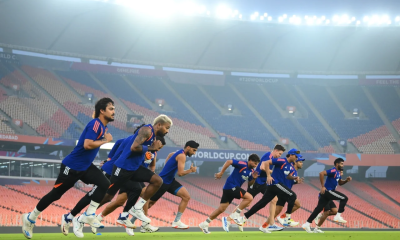
 Latest News7 days ago
Latest News7 days agoIndia, South Africa meet in the final before the final
-

 Features6 days ago
Features6 days agoProtection of Occupants Bill: Good, Bad and Ugly
-
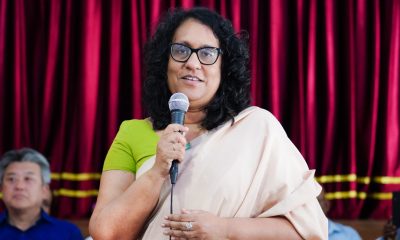
 News6 days ago
News6 days agoPrime Minister Attends the 40th Anniversary of the Sri Lanka Nippon Educational and Cultural Centre
-
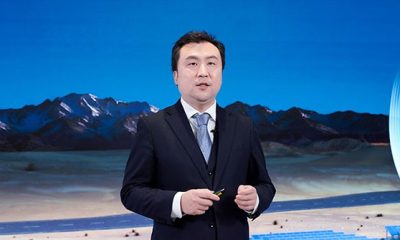
 Business6 days ago
Business6 days agoHuawei unveils Top 10 Smart PV & ESS Trends for 2026
-

 News6 days ago
News6 days agoCoal ash surge at N’cholai power plant raises fresh environmental concerns


